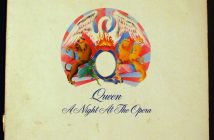With the uprise in social justice and human rights that have taken centre stage in the media following viral videos and images of police brutality and blatant racism, many institutions and companies have been highly scrutinised. This scrutiny has reached popular cartoons, such as Family Guy and The Simpsons, as both shows producers’ announced that they will stop using white actors to voice non-white characters.
For The Simpsons, it’s Apu’s character who has been under the most pressure, with a white man, voicing the Indian-American throughout the years the show has aired. The show has consequently been accused of increasing and reinforcing racial stereotypes as a result.
For Family Guy, attention has been placed on the character of Cleveland Brown, voiced by white actor Mike Henry. Despite the character appearing on the show since 1999, it’s only this week that Henry has voiced his concerns. In a tweet, he outlined that “I love this character, but persons of color should play characters of color. Therefore, I will be stepping down from the role”.
It’s been an honor to play Cleveland on Family Guy for 20 years. I love this character, but persons of color should play characters of color. Therefore, I will be stepping down from the role. pic.twitter.com/FmKasWITKT
— Mike Henry (@mikehenrybro) June 26, 2020
This action demonstrates the influential impact of the Black Lives Matter protests which have taken place over the course of the last month, but it’s also led many individuals to question the purpose of this move. After all, the Black Lives Matter movement is fighting to end injustices of Black lives, which have oftentimes ended horrifically in murder. They want racist institutions to be held to account and to ultimately be defunded and abolished. So, is this decision by extremely popular television cartoons helpful at all? Or is it simply among the various pieces of performative activism which have been exposed recently?
Some individuals online believe it’s a step in the right direction. Their arguments are that it allows non-white people more opportunities in the performance industry. And for shows with such a large following, this decision is likely to be followed by other corporations within the entertainment industry. One could argue that it sets up a narrative of anti-racism by removing white people’s appropriations of their non-white characters.
This is a big deal.
Ending cartoon Black/brown/yellowface isn’t just about inoculating against easy-racist portrayals, it’s also about giving opportunities to performers of color. Literally dozens of roles that Black, Latinx & Asian VO artists were locked out of are now open. https://t.co/C4MDRdC3RQ
— Jeff Yang (@originalspin) June 27, 2020
However, others aren’t so happy about the decision. It comes at a time when there’s particular pressure from around the world about those with power and influence being actively anti-racist. These shows have been airing for a couple of decades, and it’s taken them this long to make a seemingly minor and easy decision.
As an Indian I don't need Apu's VA to matches his race. We want more Indian characters that don't play to outdated stereotypes. Give us Raj the accountant or Karan the starbucks barista. The Simpsons aren't solving the lack of representation by getting rid of Hank Azaria as Apu pic.twitter.com/JGKQW4wyDo
— meatkid???? (@CactionJosh) June 27, 2020
Rather than solving racism within the show, some individuals are arguing that this does nothing if those racist stereotypes which have been showcased over the years are still present. After all, what does a non-white person sound like? In making the decision to give them platforms to voice characters, they are inherently increasing the prejudice against them in separating their voices from those of white people.
It seems that the majority of the responses to the producers of Family Guy and The Simpsons decisions are unsatisfied. This decision could contribute to blank acts of performative activism which do not fight for any real change becoming more normalised and accepted, and thus reduces the value and importance of being actively anti-racist.
While more shows seem set to make changes to casting, it’s important to ask ourselves whether a simple recasting solves these stereotypical presentations or whether more needs to be done!




